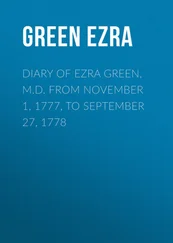Until is its loveliness become unto me
a thing of tears.
O God, what great kindness
have we done in times past
and forgotten it,
That thou givest this wonder unto us,
O God of waters?
O God of the night,
What great sorrow
Cometh unto us,
That thou thus repayest us
Before the time of its coming?
O God of silence,
Purifiez nos cœurs,
Purifiez nos cœurs,
For we have seen
The glory of the shadow of the
likeness of thine handmaid,
Yea, the glory of the shadow
of thy Beauty hath walked
Upon the shadow of the waters
In this thy Venice.
And before the holiness
Of the shadow of thy handmaid
Have I hidden mine eyes,
O God of waters.
LETANÍA NOCTURNA
O Dieu, purifiez nos coeurs!
purifiez nos coeurs!
Sí, has dejado ante mí versos
en lugares placenteros
y la belleza de esta, tu Venecia,
has tendido ante mí
hasta que su encanto me convirtió
en un mar de lágrimas.
Oh, Dios, ¿qué gran bondad
hemos hecho en el pasado,
y olvidado,
para que nos brindes esta maravilla,
oh Dios de las aguas?
Oh, Dios de la noche,
¿qué gran tristeza
viene a nosotros,
que así nos recompensas
antes del momento de su llegada?
Oh, Dios del silencio,
purifiez nos coeurs,
purifiez nos coeurs,
pues hemos visto
la gloria de la sombra
de la imagen de tu sierva,
sí, la gloria de la sombra
de tu Belleza ha caminado
sobre la sombra de las aguas
en esta, tu Venecia,
y ante la santidad
de la sombra de tu sierva
he ocultado yo mis ojos,
oh Dios de las aguas.
O God of silence,
Purifiez nos cœurs,
Purifiez nos cœurs,
O God of waters,
make clean our hearts within us,
And our lips to show forth thy praise
For I have seen the
shadow of this thy Venice
floating upon the waters,
And thy stars
have seen this thing, out of their far courses
have they seen this thing,
O God of waters,
Even as are thy stars
Silent unto us in their far-coursing,
Even so is mine heart
become silent within me.
( Fainter )
Purifiez nos cœurs,
O God of the silence,
Purifiez nos cœurs,
O God of waters.
Oh, Dios del silencio,
purifiez nos coeurs,
purifiez nos coeurs,
oh Dios de las aguas.
limpia nuestro corazón,
y que nuestros labios pronuncien tus alabanzas,
pues he visto
la sombra de esta, tu Venecia,
flotando sobre las aguas,
y tus estrellas
la han visto, desde sus lejanos cursos
han visto esta cosa,
oh Dios de las aguas;
así como ellas son tus estrellas
silenciosas para nosotros desde sus lejanos cursos,
también mi corazón
se ha callado en mi pecho.
( En voz baja )
Purifiez nos coeurs
oh Dios del silencio,
purifiez nos coeurs
oh Dios de las aguas.
NA AUDIART
Que be-m vols mal
NOTE: Anyone who has read anything of the troubadours knows well the tale of Bertran de Born and My Lady Maent of Montaignac, and knows also the song he made when she would none of him, the song wherein he, seeking to find or make her equal, begs of each preeminent lady of Langue d’Oc some trait or some fair semblante: thus of Cembelins her “esgart amoros” to wit, her love-lit glance, of Aelis her speech free-running, of the Vicomptess of Chales her throat and her two hands, at Roacoart of Anhes her hair golden as Iseult’s; and even in this fashion of Lady Audiart “although she would that ill come upon him” he sought and praised the lineaments of her torse. And all this to make “Una dompna soiseubuda” a borrowed lady or as the Italians translated it “Una donna ideale.”
Though thou well dost wish me ill
Audiart, Audiart
Where thy bodice laces start
As ivy fingers clutching through
Its crevices,
Audiart, Audiart
Stately, tall and lovely tender
Who shall render
Audiart, Audiart,
Praises meet unto thy fashion?
Here a word kiss!
Pass I on
Unto Lady “Miels-de-Ben,”
Having praised thy girdle’s scope
How the stays ply back from it;
I breath no hope
That thou shouldst…
Nay no whit
Bespeak thyself for anything.
NA AUDIART
Que be-m vols mal
NOTA: Cualquiera que haya leído algo sobre los trovadores conoce bien la historia de Bertran de Born y la dama Maent de Montaignac, y conoce también la canción que él compuso cuando ella no quería saber nada de él, la canción en la que, tratando de encontrar o hacer alguien igual, él le pide a todas las damas eminentes de Langue d’Oc un rasgo o algún buen parecido: así, de Cembelins pide su “esgart amoros,” es decir, su mirada amorosa, de Aelis su facilidad de palabra, de la vizcondesa de Chales su garganta y sus manos, en Roacoart, de Anhes su cabello tan dorado como el de Isolda; y de esta manera, de Lady Audiart, “aunque solo le deseaba el mal,” buscó y elogió la líneas de su torso. Y todo esto para hacer “Una dompna soiseubuda,” una dama prestada, o como traducen los italianos, “Una donna ideale.”
Aunque tú me deseas el mal
Audiart, Audiart,
donde empiezan los cordones de tu corpiño
como dedos de hiedra que se agarran a través de
sus fisuras,
Audiart, Audiart,
majestuosa, alta y encantadoramente tierna
¿quién ha de emitir
Audiart, Audiart,
elogios dignos de tu distinción?
¡Vaya un beso de palabra!
Paso
a la dama “Miels-de-Bien,”
luego de ponderar la forma de tu faja
que se pliega por detrás;
no abrigo esperanza
de que tú vayas a ….
No, ni una pizca
de ti reserves para nada.
Just a word in thy praise, girl,
Just for the swirl
Thy satins make upon the stair,
‘Cause never a flaw was there
Where thy torse and limbs are met
Though thou hate me, read it set
In rose and gold.
Or when the minstrel, tale half told,
Shall burst to lilting at the phrase
“Audiart, Audiart” …
Bertrans, master of his lays,
Bertrans of Aultaforte thy praise
Sets forth, and though thou hate me well,
Yea though thou wish me ill,
Audiart, Audiart.
Thy loveliness is here writ till,
Audiart,
Oh, till thou come again.
And being bent and wrinkled, in a form
That hath no perfect limning, when the warm
Youth dew is cold
Upon thy hands, and thy old soul
Scorning a new, wry’d casement,
Churlish at seemed misplacement,
Finds the earth as bitter
As now seems it sweet,
Being so young and fair
As then only in dreams,
Being then young and wry’d,
Broken of ancient pride,
Thou shalt then soften,
Knowing, I know not how,
Thou wert once she
Audiart, Audiart
For whose fairness one forgave
Audiart, Audiart
Que be-m vols mal.
Solo una palabra de alabanza, niña,
tan solo por el remolinear
que hacen tus satenes en la escalera,
pues jamás hubo una tacha
donde tu torso y piernas se unen
aunque me odias, léelo escrito
en rosa y oro. 50
O cuando el trovador, en la mitad del cuento,
irrumpe en elogio a las palabras de
“Audiart, Audiart” …
Bertran, dueño de sus canciones,
Bertran de Aultaforte tu elogio
empieza, y aunque me odias,
sí, aunque me deseas el mal,
Audiart, Audiart,
Tu hermosura queda aquí escrita, hasta que,
Audiart,
hasta que vuelvas de nuevo. 51
Читать дальше











